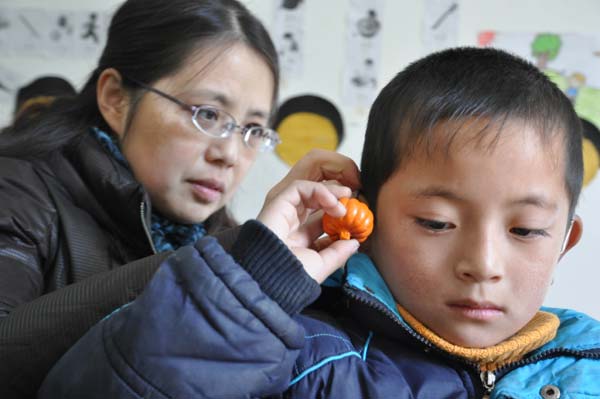
The 21 dancers who perform the One Thousand Hands Buddha are admired across China because of their success in spite of their deafness. Few people who watch them move to music they cannot hear know that 18 of the dancers lost their hearing because of the inappropriate use of antibiotics.
The 18 are just the tip of the iceberg. In China, more than 1 million children are deaf because of the misuse of antibiotics that include streptomycin, kanamycin and gentamicin, according to the Chinese Medical Association.
Now, a gene detector that can identify children with genes that will make them susceptible to deafness is expected to turn the tide and ensure vulnerable children are no longer exposed to antibiotics that could harm them.
China's State Food and Drug Administration has approved the detector for clinical use. The device will be made available to hospitals throughout the country, said Cheng Jing, chief technology officer with the national engineering research center of Beijing Biochip Technology.
"Due to the lack of proper equipment, doctors could not tell which patients might become deaf because of the antibiotics they prescribed. Many tragedies will be prevented by the use of the device," Cheng said on Wednesday.
The gene detector looks for nine mutations of four genes, which are responsible for most cases of deafness in China.
Cheng said it only takes about five hours to get the results of the tests and each analysis will cost about 500 yuan ($76).
"Conventional methods are much more expensive and take at least three days," he said.
The detector can also help parents-to-be and new parents by informing them of a risk of deafness in their babies as early as possible, Cheng said. About 30,000 babies are born deaf each year in China.
"We are getting approvals from commercial and medical authorities," he said. "The device will gradually become available in most hospitals in China in the coming years. As demand rises, it will become even cheaper in the future."
China has 1.8 million deaf children. Some 60 percent lost their hearing because of the inappropriate use of antibiotics, according to Yang Zhiyin, head of the behavioral medicine branch of the Chinese Medical Association.